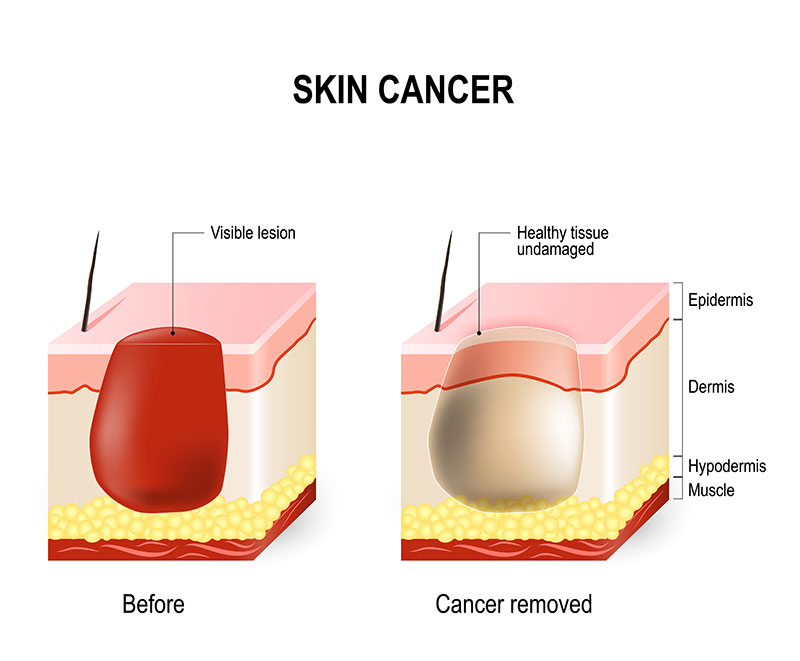Mohs proves itself better again, even in Desmoplastic Melanoma!
 Mohs surgery is a procedure used to treat skin cancer. This surgery removes a narrow margin of normal looking skin beyond the obvious tumor. This tissue is processed in such a way that all of the outer margin and underside can be examined under the microscope. If residual cancer is seen reaching the outer edges a further thin margin is removed in that area only. The process is repeated until all the margins are proved to be clear.
Mohs surgery is a procedure used to treat skin cancer. This surgery removes a narrow margin of normal looking skin beyond the obvious tumor. This tissue is processed in such a way that all of the outer margin and underside can be examined under the microscope. If residual cancer is seen reaching the outer edges a further thin margin is removed in that area only. The process is repeated until all the margins are proved to be clear.
Desmoplastic melanoma is a dangerous form of melanoma with a particularly high rate of local recurrence after standard surgical excision. While there have been previous studies showing Mohs surgery to be equal or better than regular wide excision for early regular melanomas, this is the first study indicating Mohs surgery also gives an advantage over wide surgical excision for desmoplastic melanoma as well.
In this retrospective single-institution study of 109 desmoplastic melanoma cases, 63 were treated with wide local excision (WLE) and 46 were treated with Mohs micrographic surgery (MMS). The local recurrence rate for WLE was 8%, and 11% of the patients required repeat surgery for local recurrence or positive/equivocal margins after WLE. No local recurrence was reported among patients treated with MMS; however, 1 patient required repeat surgery due to positive margins observed on permanent frozen sections.
